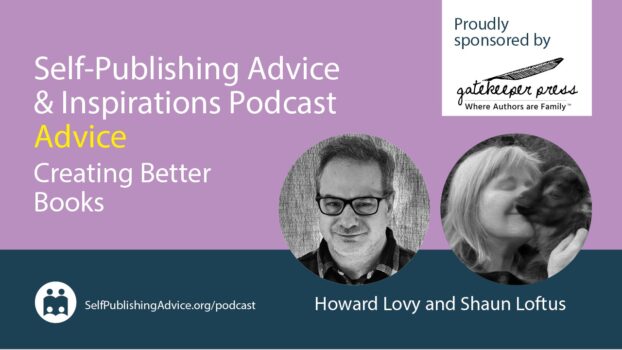In her previous post, Roz Morris described how she got her novels stocked by independent bookstores. Drawing on that experience, she has put together some practical pointers to help you do the same, without sacrificing your profit margin.
 Visiblity
Visiblity
For bookstores to be able to order your books, you need to make them available via their distributors. When preparing my print books, I did all I could to get widespread distribution. On Createspace, I ticked all the options. I also registered each book for the Nielsen book database, which hooks up to distributors that CreateSpace doesn’t reach. (Do this by emailing [email protected] and asking for a registration form. They’re very helpful.)
Terms
The shops I’ve dealt with take my books on sale or return. I supply them personally and give a discount of 40% – which seems to be industry standard – on the list price.
Delivery costs
Weight up your delivery costs. If you deliver, consider your costs. Shops usually take only two of each title. If you’ve already paid shipping to have them brought to you, and then you have to travel to a bookshop to deliver or to collect unsold books, that can nix your profits. On the other hand, you might feel the exposure on a store’s shelf is worth it regardless. The shop I spoke to at the pub event was too far away for me to supply directly, although they took my card and might have ordered from the wholesaler.
Shelf-life
How long do they keep your books for? Shop 1 in London was happy to keep my books for ever, even though it took six months to sell one copy. (Unfortunately he’s now closing down.) Shop 2 in London didn’t sell any copies after six weeks and by then thought I’d outstayed my welcome (ouch – thank heavens for Barton’s).
What if you get rebuffed?
Indie bookshops are all vastly different. Bookseller 2 in London rejected Nail Your Novel altogether when he saw the copyright notice was 2009. That was just his policy. Basically, there are no rules. I don’t think either of the shops in London even considered reading my books. But it undoubtedly made a big difference that Peter Snell at Barton’s did. Barton’s also has a regular programme of signings and a sense of community, but in the two London shops, events aren’t part of their culture. Indeed, when I offered to run an ‘ask the author’ evening, they were baffled. So if you’re rebuffed, don’t be discouraged. Like querying agents and publishers, the next shop is a blank slate.
If you’d like to add further advice, please feel free to leave a comment!






Great article, it’s so frustrating, any profit made is spent on postage, printing etc. Sometimes I wonder if it’s ever worth it!
I understand wanting the exposure and all, but there are much easier and better ways now to get enhanced exposure. One of the ways is through used paperback lending sites. Also, free paperbacks do seem to ACTUALLY GET READ rather just downloaded and forgotten. The cost of two or three “dead tree” copies plus postage seems a lot easier and cost effective. I’m not going to name any specific websites, but it seems to me that simply listing one or two copies of your book through these sites would be a good “pull-through” strategy. If you’re an Indie and don’t understand that marketing term, look it up!
Thanks!
I was a bookseller in a small independent book shop in North London where we would often stock local authors’ books, and indeed needed at least 40 % discount on the title. Some authors gave 50%, especially if the price was low, ie under £5.00.
More often than not, the authors would deliver the stock, but as space in any bookshop is always a problem, it was better for us if the title was stocked either at Bertram’s or Gardners. Gardners, I know, offer a print on demand service, but this may be more expensive than Createspace.
I would personally only try to get into bookstores to gain some visibility in your local area, as the sales revenue at that margin can be disappointing. But, a bookseller who is keen on your book is an excellent sales person to have on your side to spread the word about you as a good author. This works espcially if you have many titles out in both digital and print form.
I wrote a post about my experiences and what I think works a few months ago on my blog, so it’s great to read about yours, Roz!
Hi Helena – I didn’t know you’d run a bookshop! I shall certainly check your post out.
Like I said to Daniel above, I’m not making bookshops a priority, only grasping opportunities as they arise. And for exactly the reasons you say – it’s a great boost to have some kind of terrestrial presence, but not essential.
Thanks for offering a realistic view of getting books into bookstores. Many self-published authors who are new to the business seem to think that just because their book is listed in a distribution catalog (e.g. Ingram or Baker & Taylor) that book stores will suddenly start ordering them. Uh…no.
With few exceptions, most of the authors I know who have tried to get a self-published book into a bookstore have had to work hard to make it happen–so hard that the profit is more likely a loss. You really have to want your book in bookstores to make it happen.
The exceptions I mentioned were non-fiction books that were marketed to venues that specialized in the book’s subject matter. You find the most success with so-called “special sales” to these outlets. Other authors have had good luck with consignment, but that is a labor intensive and risky approach that generally yields poor profits.
Self publishing guru Dan Poynter is famous for saying, “Book stores are the worst place to sell books.” His comment related to self-published non-fiction, but a lot of the same rationale applies to fiction. I’m inclined to agree with him. From a purely business perspective, selling to bookstores isn’t worth the effort for most of us. And for the most part, they don’t want our stuff anyway.
Hi Daniel! Yes, it is hard work, and I certainly don’t approach it as a crusade. If a shop is easy for me to visit regularly – and in fact I might go in shopping anyway – I mention my books and see what the response is. To my surprise I’ve never been rebuffed. I expected that they wouldn’t want ‘non-gatekept’ books, but they’re quite open to them. Although maybe that’s only the UK. Indeed Porter Anderson was discussing this on his column Writing On The Ether – http://janefriedman.com/2013/07/04/writing-on-the-ether-97/. Some commenters suggested there’s a marked difference between the UK and the US.
[…] I’m still new to this, but there are a few guidelines I’ve established that might help if you’re approaching bookshops to sell your work. And if there’s any advice you’d add, do please jump in! Every shop is different and I’m sure my experience is merely the tip of a very large berg. Here are my tips at the Alliance of Independent Authors… […]